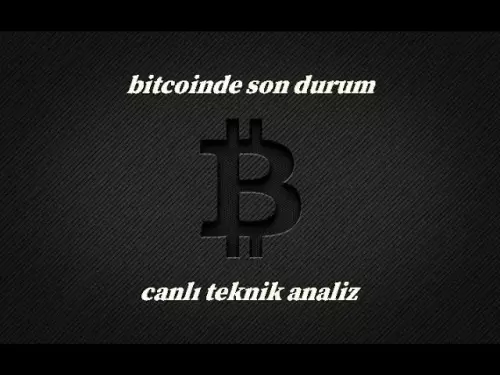-
 Bitcoin
Bitcoin $117,462.7870
-0.20% -
 Ethereum
Ethereum $2,944.1642
-0.74% -
 XRP
XRP $2.7525
-2.36% -
 Tether USDt
Tether USDt $1.0003
-0.02% -
 BNB
BNB $686.3272
-1.22% -
 Solana
Solana $160.8391
-1.71% -
 USDC
USDC $0.9999
-0.01% -
 Dogecoin
Dogecoin $0.1968
-4.47% -
 TRON
TRON $0.3021
-0.99% -
 Cardano
Cardano $0.7127
-2.47% -
 Hyperliquid
Hyperliquid $47.2712
1.78% -
 Stellar
Stellar $0.4051
2.96% -
 Sui
Sui $3.3907
-1.98% -
 Chainlink
Chainlink $15.0738
-2.39% -
 Bitcoin Cash
Bitcoin Cash $505.7198
-4.98% -
 Avalanche
Avalanche $20.9861
-0.25% -
 Hedera
Hedera $0.1998
-0.19% -
 UNUS SED LEO
UNUS SED LEO $9.0798
-0.12% -
 Shiba Inu
Shiba Inu $0.0...01314
-2.37% -
 Toncoin
Toncoin $3.0109
0.16% -
 Litecoin
Litecoin $93.0662
-2.32% -
 Polkadot
Polkadot $3.8982
-2.60% -
 Monero
Monero $330.3859
-0.88% -
 Dai
Dai $0.9998
-0.02% -
 Ethena USDe
Ethena USDe $1.0004
-0.04% -
 Uniswap
Uniswap $8.4088
-4.36% -
 Pepe
Pepe $0.0...01225
-2.05% -
 Bitget Token
Bitget Token $4.3871
-2.72% -
 Aave
Aave $300.3442
-0.56% -
 Bittensor
Bittensor $382.5815
-4.29%
What are gas fees for smart contracts?
Gas fees on blockchain networks like Ethereum compensate miners for computational resources, with costs determined by gas used, gas price (in gwei), and network demand.
Jul 11, 2025 at 01:42 am
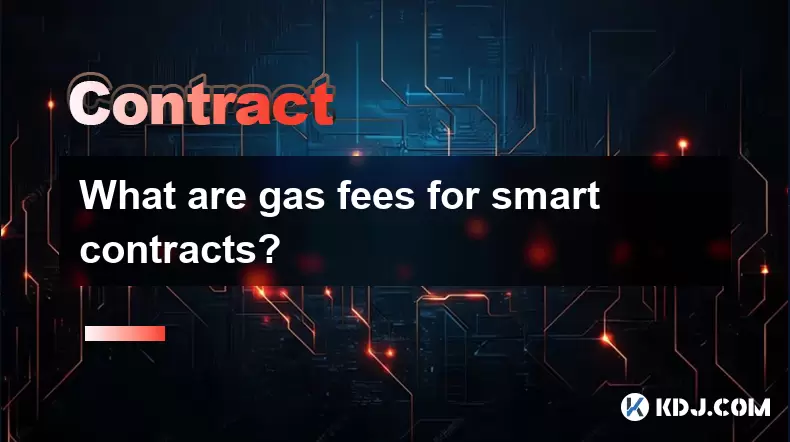
Understanding the Basics of Gas Fees
In the realm of blockchain and smart contracts, gas fees are a fundamental concept. They represent the cost required to execute operations on a blockchain network like Ethereum. Every action, whether it's transferring tokens or executing a complex smart contract function, consumes computational resources. To compensate miners or validators for their work, users must pay gas fees in the network’s native cryptocurrency, such as ETH.
The term "gas" refers to the unit that measures how much computational effort is needed to perform specific tasks. Each operation within a smart contract has a predefined gas cost. The total gas required for a transaction multiplied by the gas price (usually denominated in gwei) determines the final fee paid by the user.
For example:
If a transaction requires 21,000 gas units and the gas price is set at 10 gwei (10 x 10^-9 ETH), the total fee would be 0.00021 ETH.How Smart Contracts Consume Gas
Smart contracts are self-executing programs with logic written into them. When these contracts are deployed or interacted with, they trigger various operations — some simple, others highly complex. Each instruction inside a contract consumes a certain amount of gas.
Operations like reading from storage (SLOAD) or writing data (SSTORE) are relatively expensive in terms of gas consumption. More computationally intensive actions, such as looping through large arrays or performing cryptographic computations, can dramatically increase the gas cost of a transaction.
It’s important to note:
Not all functions within a smart contract consume the same amount of gas. Developers often optimize code to minimize unnecessary operations and reduce overall costs.Factors Influencing Gas Prices
Gas fees are not static; they fluctuate based on several dynamic factors:
- Network congestion: During periods of high activity, users may need to pay higher gas prices to get their transactions prioritized.
- Gas limit: Users specify the maximum amount of gas they're willing to spend on a transaction. If this limit is too low, the transaction may fail.
- Gas price bidding: Users can choose how much they want to pay per unit of gas. Higher bids generally result in faster confirmations.
A practical scenario:
On a busy day, if the base fee is 50 gwei and you're willing to pay a priority tip of 5 gwei, your effective gas price becomes 55 gwei, increasing the likelihood of your transaction being included in the next block.Steps to Estimate and Manage Gas Costs
Managing gas fees effectively is crucial for both developers and end-users. Here's how you can do it:
Use gas estimation tools:
Platforms like Etherscan or MetaMask provide gas estimators that help predict the cost before sending a transaction.Monitor real-time gas prices:
Tools like GasNow or ETH Gas Station show current gas rates, helping users decide when to send transactions.Set appropriate gas limits:
Always ensure the gas limit is slightly above the estimated value to avoid out-of-gas errors.Batch transactions where possible:
Combining multiple actions into one reduces the overhead of initiating separate transactions.
Developers should also test contract interactions using local environments like Hardhat or Ganache to measure gas usage without spending real funds.
Differences Between Deployment and Execution Costs
Deploying a smart contract is typically more expensive than interacting with an already deployed one. This is because deployment involves uploading the entire bytecode of the contract onto the blockchain.
Once deployed, calling functions on the contract usually incurs lower fees unless those functions modify the state (e.g., updating variables). Read-only functions, which don’t alter the blockchain state, are often free in many wallets, although technically they still consume gas.
Key takeaway:
Deploying a contract may cost thousands of dollars during peak times, while regular function calls might only cost a few cents or dollars depending on complexity and network conditions.Frequently Asked Questions
What happens if I don't include enough gas for a transaction?
If the gas provided is insufficient, the transaction will fail and revert all changes. However, the gas used up until the failure is still consumed and not refunded.
Can gas fees be paid in tokens other than ETH?
No, gas fees on Ethereum and similar networks must be paid in the native currency of that network, such as ETH, BNB, or MATIC, depending on the chain.
Is there a way to get gas refunds?
Yes, certain operations like clearing storage slots offer partial gas refunds. However, these refunds are limited and cannot exceed half of the gas consumed in the transaction.
Why do different wallets show varying gas prices?
Wallets use different strategies and APIs to calculate recommended gas prices. Some prioritize speed, while others aim for cost efficiency, leading to variations in suggested values.
Disclaimer:info@kdj.com
The information provided is not trading advice. kdj.com does not assume any responsibility for any investments made based on the information provided in this article. Cryptocurrencies are highly volatile and it is highly recommended that you invest with caution after thorough research!
If you believe that the content used on this website infringes your copyright, please contact us immediately (info@kdj.com) and we will delete it promptly.
- Bitcoin Dominance, Altcoin Season, and SUBBD Token: A New Era?
- 2025-07-13 09:10:13
- Cryptos in 2025: Navigating the Banana Zone and Beyond
- 2025-07-13 08:30:12
- Troller Cat Presale Surge: Is It the New Shiba Inu?
- 2025-07-13 09:10:13
- Pumpfun's Solana Launchpad Dominance: Market Share, Trends, and What It Means for You
- 2025-07-13 09:15:12
- Dogwifhat (WIF) Eyes Bull Breakout: Can the Hat Dog Hit New Highs?
- 2025-07-13 09:15:12
- BlockDAG, TRON, and Stellar: Charting the Course for Altcoin Dominance
- 2025-07-13 09:30:12
Related knowledge

Psychology of trading Bitcoin contracts
Jul 13,2025 at 02:50am
Understanding the Emotional Rollercoaster of Bitcoin Futures TradingBitcoin contract trading, especially in the form of futures, introduces a high lev...
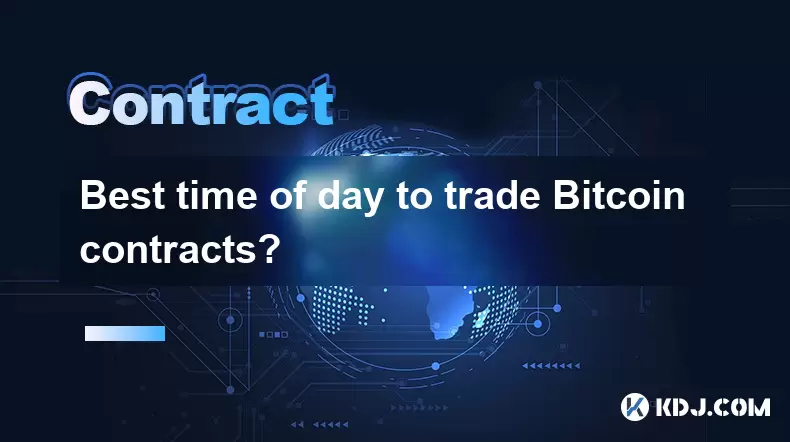
Best time of day to trade Bitcoin contracts?
Jul 13,2025 at 05:29am
Understanding Bitcoin Contracts and Their VolatilityBitcoin contracts, particularly futures contracts, are derivative instruments that allow traders t...

How to use Fibonacci levels in Bitcoin contract trading?
Jul 13,2025 at 08:07am
Understanding Fibonacci Levels in TradingFibonacci levels are a technical analysis tool used by traders to identify potential support and resistance z...
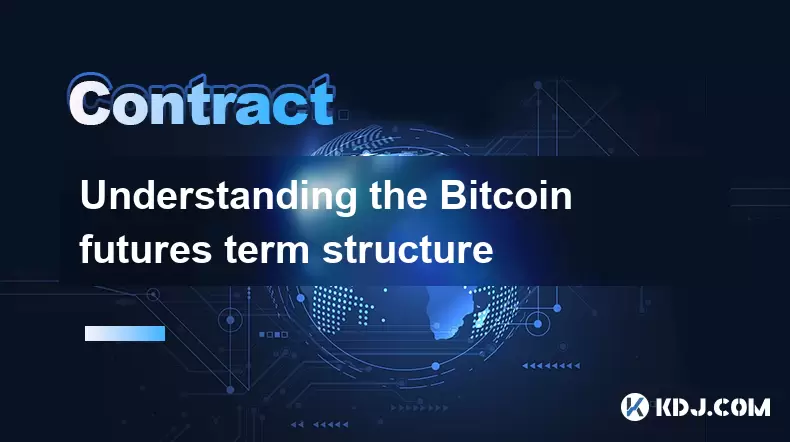
Understanding the Bitcoin futures term structure
Jul 13,2025 at 08:28am
What is Bitcoin Futures Term Structure?The Bitcoin futures term structure refers to the relationship between the prices of Bitcoin futures contracts w...
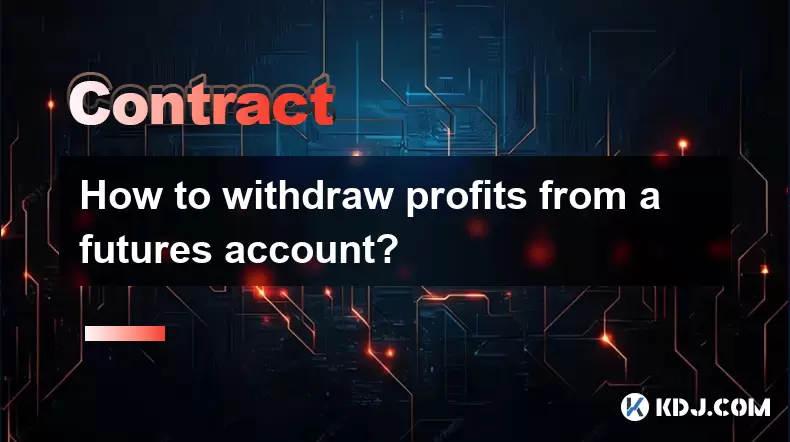
How to withdraw profits from a futures account?
Jul 13,2025 at 07:07am
Understanding Futures Accounts and Withdrawal MechanicsIn the cryptocurrency space, a futures account is used to trade contracts that derive their val...
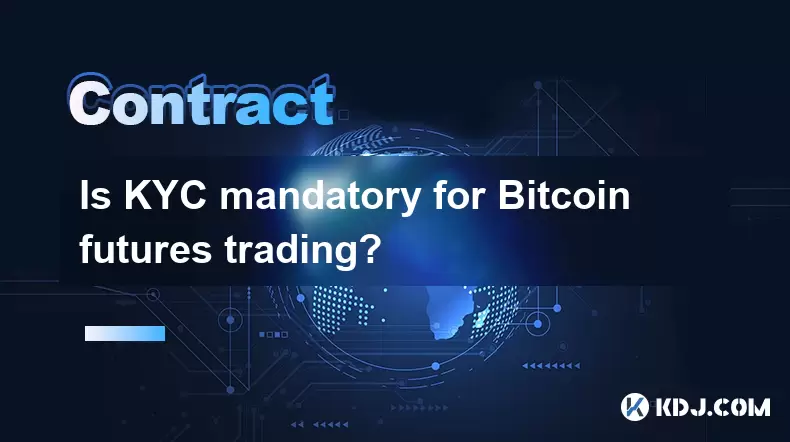
Is KYC mandatory for Bitcoin futures trading?
Jul 12,2025 at 10:56pm
Understanding KYC in the Context of Bitcoin Futures TradingKnow Your Customer (KYC) is a regulatory requirement that financial institutions and servic...

Psychology of trading Bitcoin contracts
Jul 13,2025 at 02:50am
Understanding the Emotional Rollercoaster of Bitcoin Futures TradingBitcoin contract trading, especially in the form of futures, introduces a high lev...

Best time of day to trade Bitcoin contracts?
Jul 13,2025 at 05:29am
Understanding Bitcoin Contracts and Their VolatilityBitcoin contracts, particularly futures contracts, are derivative instruments that allow traders t...

How to use Fibonacci levels in Bitcoin contract trading?
Jul 13,2025 at 08:07am
Understanding Fibonacci Levels in TradingFibonacci levels are a technical analysis tool used by traders to identify potential support and resistance z...

Understanding the Bitcoin futures term structure
Jul 13,2025 at 08:28am
What is Bitcoin Futures Term Structure?The Bitcoin futures term structure refers to the relationship between the prices of Bitcoin futures contracts w...

How to withdraw profits from a futures account?
Jul 13,2025 at 07:07am
Understanding Futures Accounts and Withdrawal MechanicsIn the cryptocurrency space, a futures account is used to trade contracts that derive their val...

Is KYC mandatory for Bitcoin futures trading?
Jul 12,2025 at 10:56pm
Understanding KYC in the Context of Bitcoin Futures TradingKnow Your Customer (KYC) is a regulatory requirement that financial institutions and servic...
See all articles





















